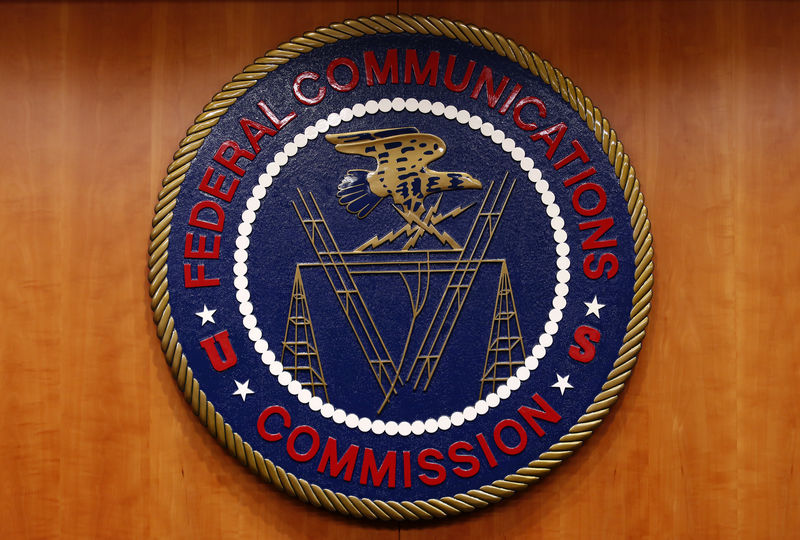By David Shepardson
WASHINGTON (Reuters) - A federal appeals court asked pointed questions of the Federal Communication Commission on Friday in hearing a challenge to whether the Trump administration acted legally when it repealed landmark net neutrality rules governing internet providers in December 2017.
The panel heard more than four hours of arguments in the first court hearing on the FCC's controversial decision to reverse the Obama administration's 2015 rules, which barred internet service providers from blocking or throttling traffic, or offering paid fast lanes, also known as paid prioritization.
The arguments focused on how internet providers should be classified under law - either as information service providers as the Trump administration decided or as a public utility, which subjects companies to more rigorous regulations - and whether the FCC adhered to procedural rules in dismantling the Obama-era rules.
"We are creating rules that are built to last," FCC general counsel Tom Johnson told the U.S. Court of Appeals for the District of Columbia.
Judge Patricia Millett repeatedly pressed Johnson over the FCC's legal basis for treating telephone calls differently than internet traffic and asked if the FCC had properly considered the public safety impacts.
Millett raised the example of police needing to send urgent photos or video of a suspect that could be delayed if some internet traffic was prioritized.
"We can't anticipate all harms," Johnson said. As he sought to play down the concern Millett interjected: "There's no evidence because they haven't done it yet."
In its 2017 decision the Republican-led FCC voted 3-2 along party lines to reverse the net neutrality rules. The agency gave providers sweeping power to recast how users access the internet but said they must disclose any changes in users’ internet access.
The appeals panel is made up of Judges Millet and Robert Wilkins, two appointees of Democratic former President Barack Obama, and Stephen Williams (NYSE:WMB), an appointee of Republican Ronald Reagan.
CHALLENGE FROM STATES, COMPANIES
A group of 22 state attorneys general and the District of Columbia asked the appeals court to reinstate the Obama-era internet rules and to block the FCC’s effort to pre-empt states from imposing their own rules guaranteeing an open internet.
Several internet companies are also part of the legal challenge, including Mozilla Corp, Vimeo Inc and Etsy Inc (ETSY.O), as well as numerous media and technology advocacy groups and major cities, including New York and San Francisco.
The challengers also got difficult questions about their legal rationale for seeking reinstatement of the rules.
Kevin Russell, a lawyer for the challengers, said hypothetically an internet provider could now block the Daily Caller website or graphic animal abuse videos as long as they disclosed it.
"We never get a straight answer from the commission whether it thinks blocking and throttling must always be prohibited" or only if it applies to punishing a competitor, Russell said, arguing that the FCC failed to engage in a reasoned analysis and did not properly assess consumer complaints.
Johnson conceded that providers could block or throttle traffic under the FCC rules but said it was unlikely. He said the Federal Trade Commission could take action against anticompetitive conduct.
Millett suggested that under the rules that providers would be free to block pro-Nazi websites or other objectionable content without facing antitrust issues.
The FCC repeal was a win for providers like Comcast Corp (NASDAQ:CMCSA)
Major providers have not made any changes in how Americans access the internet since the repeal.
In October, California agreed not to enforce its own state net neutrality law until the appeals court’s decision on the 2017 repeal, and any potential review by the U.S. Supreme Court.

A decision is expected by this summer.